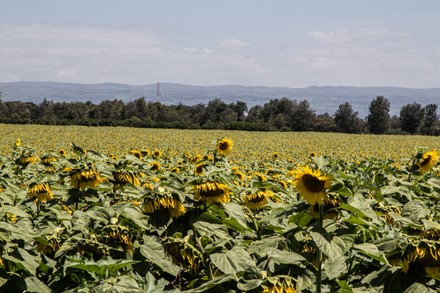At least 4000 farmers received certified sunflower seeds from the Nakuru County government in a move aimed at enhancing sunflower production to increase production of edible oil related products.
The move is expected to cut on import bills on edible oils towards lowering the prices of cooking oil in the country.
County Crops Officer Ms Lilian Samoei said the seeds were distributed to registered farmers where 15,000 kilograms of the certified seeds was issued for planting on a total of 5,000 acres of land across the County.
She said the county targets to increase the acreage under the crop to more than 15,000 acres within the next three years across the eleven sub-counties.
While noting that Kenya spends at least Shs 160 billion annually to import edible oils from other countries, mainly South-East Asian countries, the crop officer said Governor Kihika’s administration embarked on sunflower promotion project to boost local production of the oil crops and help address the cost of edible oils in the country.
The crops officer explained that the sunflower program was coordinating the distribution of certified planting material to farmers, subsidized fertilizer, providing market linkages and enhancing value addition to boost farmers’ earnings.
The officer further added that the county government was determined to have farmers access quality sunflower seeds and enhanced agriculture extension services for farmers towards increasing edible oil products.
“We are promoting sunflower production to put money in the hands of our people,” Ms Samoei added.
The crop officer said two main categories of sunflower namely Hybrid Variety and Open Pollinated Variety (OPV) are currently being grown in most parts of the county in addition to others including Sunbeam, Mammoth, Autumn Beauty, Teddy Bear and Kenya Fedha. The crop matures in three to four months.
Speaking during a sunflower promotion sensitization baraza at Nyota Ward within Kuresoi North Sub- County the County Crops Officer said through public-private partnerships Governor Kihika’s administration was enabling the farmers access services such as tilling their land, supervision and extension services during propagation.
The official said the county was committed to supporting farmers to ensure they grow the sunflower satisfactorily adding that in future the County was keen in supporting them with machines to enable them produce their cooking oil for sale in the local markets.
She was optimistic that production of edible oil will help to eradicate poverty in the area and told the farmers to take the initiative seriously to ensure they harvest the targeted quantity of sunflowers by exercising the best agricultural practices.
Ms Samoei said the County Government was promoting oil crop farming to reduce the import bill for edible oils and lower the prices of cooking oil in Kenya.
She said that although sunflower was drought resistant and adaptable to many ecological zones, Kenya was currently producing less than 50 percent of her needs adding that the huge unmet demand guarantees a ready local and international market for the crop.
Kenyan manufacturers have been grappling with huge deficits in production of Sunflower. Key players, who manufacture edible oils locally, have resorted to importing Sunflower from Tanzania and Uganda to sustain processing demand.
According to data from the Nuts and Oil Crops Directorate under the Agriculture and Food Authority (AFA), Kenya produces only 34 percent of its edible oils and fat requirements, with the deficit being imported mainly from South Asian countries.
Statistics from AFA state that the country remains a net importer of vegetable oils as local production has not grown to meet local demand, yet many oil seeds such as canola, sunflower, simsim, coconut and groundnuts can be grown and processed locally.
AFA has further indicated that the country’s import bill of edible oils has been increasing at an annual rate of 15 percent due to skyrocketing demand locally.
By Esther Mwangi and Meggy Njoki





